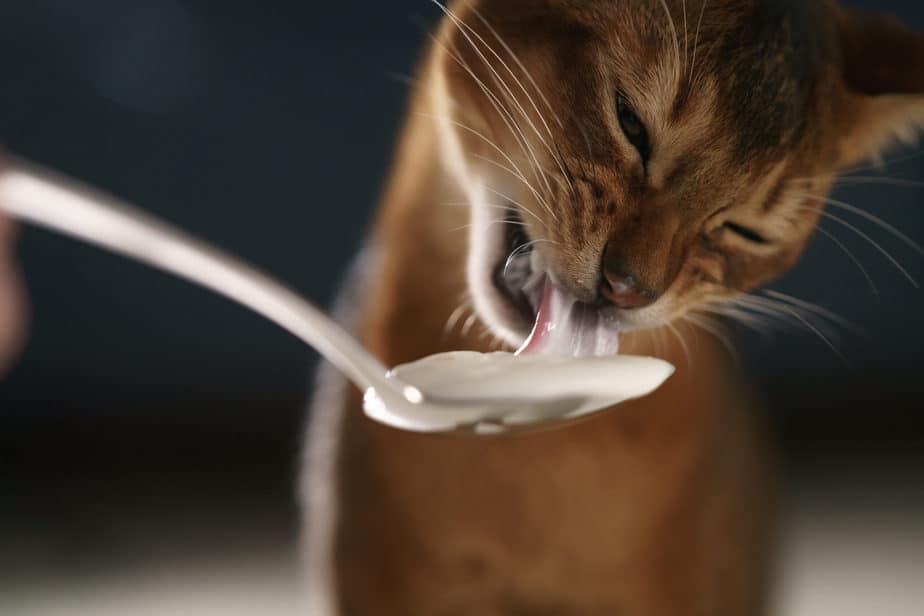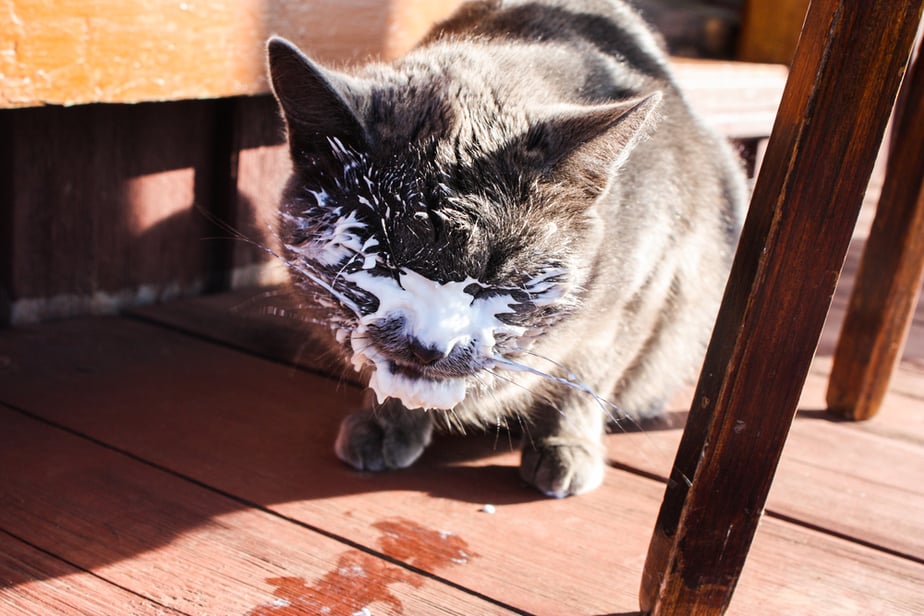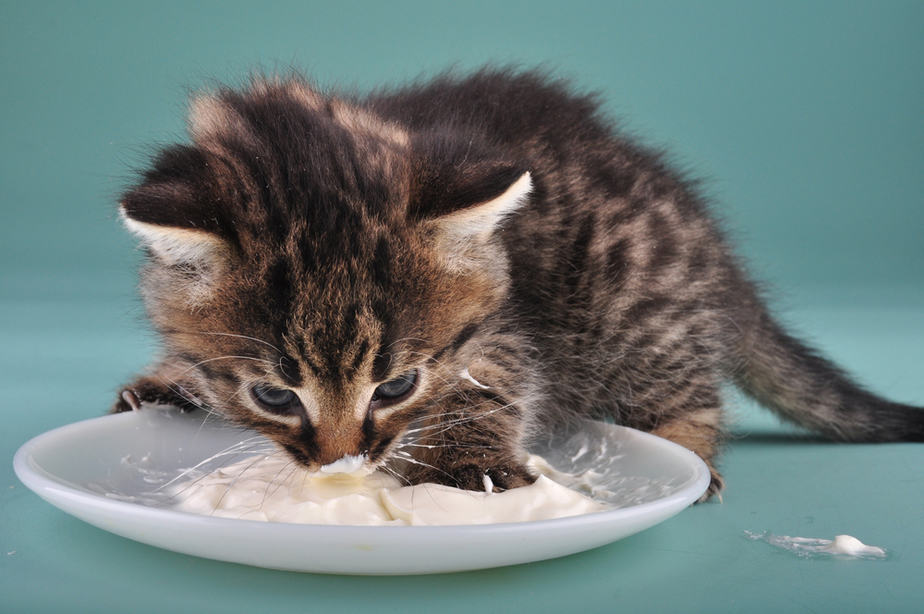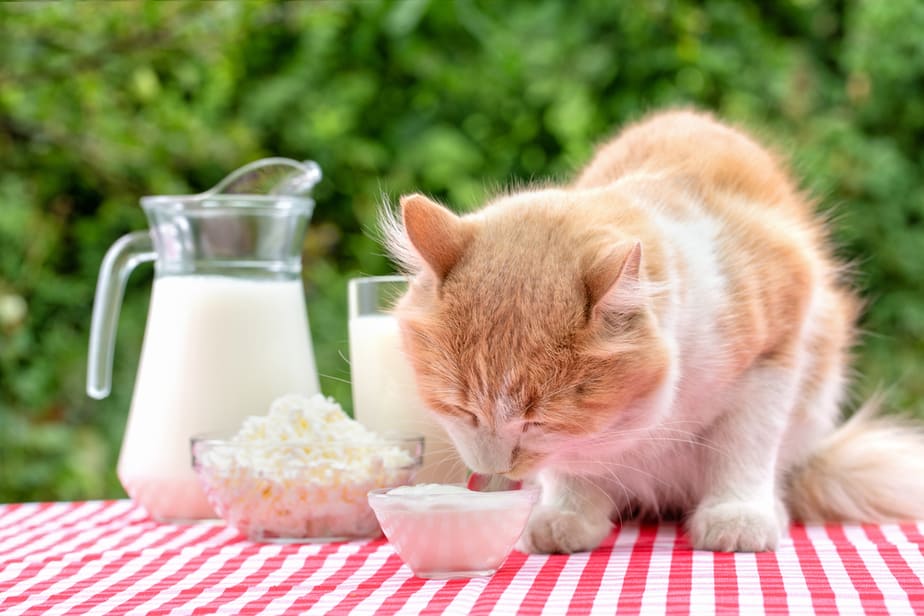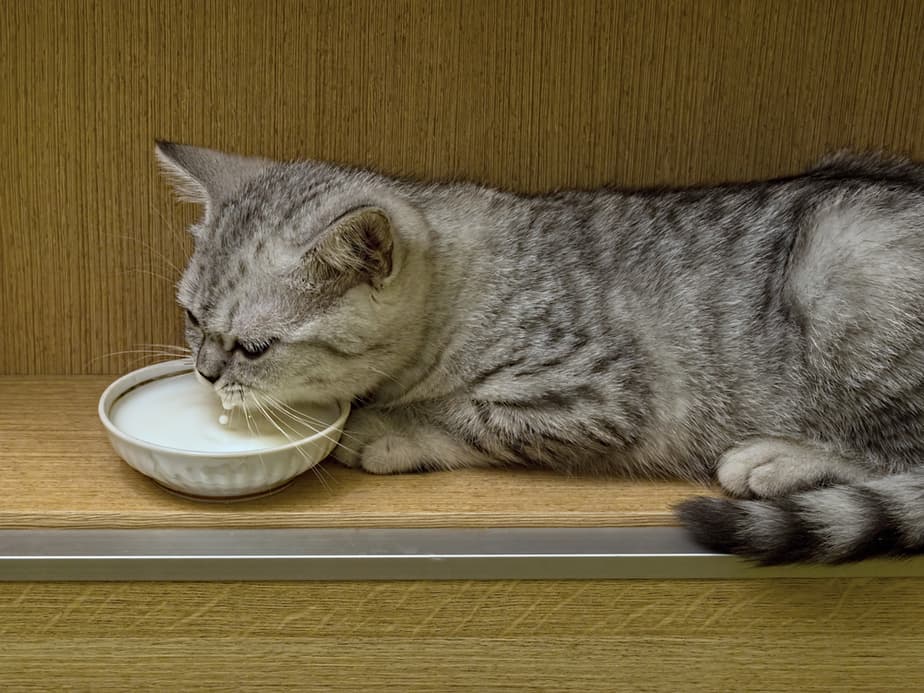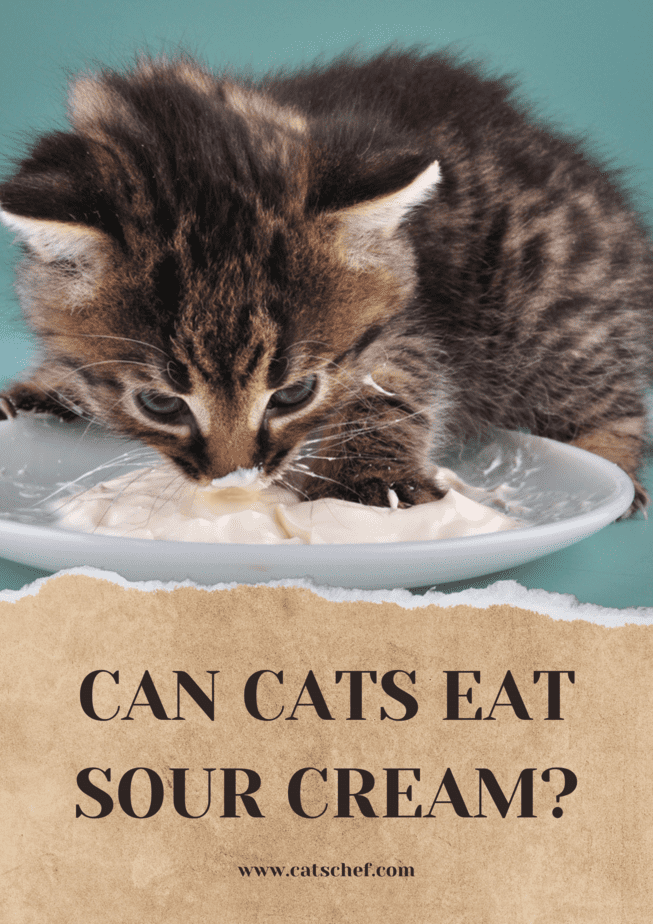📖 Table of Content:
Another misconception when it comes to cats is sour cream. Cats can eat sour cream, but is it really good for them? We rarely give too much thought to something that’s been presented in commercials.
Movies, series, and cartoons have led us to think that dairy products are good for cats. While felines can eat foods such as milk and sour cream, it doesn’t mean they should.
We will discover both the health benefits and the dangers of this dairy product. You will learn whether or not you can feed your cat sour cream and why it’s good only as an occasional treat.
Is sour cream safe for cats?
It’s hard to say yes or no on this one. Whether cats can eat sour cream depends on your fluff. Each and every cat is different, just like humans. What works for one may not work for the other.
Sour cream isn’t poisonous for felines. So when it comes to safety, they’re good to go. However, sour cream is a dairy product, which can be a bad thing.
Cats are known to be lactose intolerant. And sour cream contains lactose.
Sour cream is a dairy product that’s produced through a process of bacterial fermentation, so that’s where the sour taste comes from. So, a few licks of sour cream here and then won’t likely cause harm. Yet, remember that most felines’ digestive systems cannot handle lactose.
Do cats even like sour cream?
Once again, this depends on your furbaby. If she’s keen on discovering new foods, then yes. Especially if she’s drawn to milk which, to be fair, a lot of cats are. The fat contained in milk is what attracts them, but the sugar may be a problem.
Sour taste isn’t one of their favorites, though. They can detect it, but it doesn’t really tickle their fancy. What may attract them is the fat in sour cream. Certain amounts of fat and saturated fat can be found in sour cream and that’s what makes cats’ whiskers buzz!
However, don’t let your cat lick sour cream off of other foods. There may be some seasonings and spices that could hurt your cat’s stomach. Sour cream intake should always be supervised by you and given in moderate portions.
Health benefits of sour cream
Just because it contains lactose doesn’t mean it’s necessarily unhealthy. Its use is widespread and can be found as an ingredient in many foods. Apart from fat and carbs, sour cream also contains protein.
Cats can eat sour cream to help manage their need for protein, but only for a short period. However, don’t give sour cream as her main course of the day, as your little carnivore still needs her meat!
This dairy product can benefit your cat due to the minerals contained therein. Sour cream has a percentage of minerals like calcium, which is necessary for bone growth. Potassium and magnesium serve your pet’s health by helping your feline with muscle contractions and nerve transmission.
Also found in sour cream is phosphorus, which aids in maintaining acid-base balance. It also helps keep your cat’s bones, teeth, and claws in tip-top shape.
Sour cream isn’t lacking the vitamin department either. For instance, it contains vitamin A, which is beneficial to your feline’s eyesight, as well as riboflavin (also called vitamin B2) for energy metabolism.
Besides these, sour cream is rich in cobalamin, important for nerve function. Vitamin B12 also helps make new cells and boosts your pet’s immune system.
Lactose intolerance in cats
Cats are carnivorous – their bodies are made for breaking down animal protein. When we say cats are obligate carnivores, we think of meat as a necessity. Their high demand for meat and protein surpasses the need for carbohydrates, for example.
Thanks to evolution, felines’ bodies have adapted to digest meat, but not milk. Cow’s milk is the most common milk used in human consumption. This dairy product is high in a certain sugar called lactose.
The evolved cats’ metabolism lacks the enzyme called lactase that helps break down lactose. Therefore, lactose intolerance is the condition where your body can’t digest lactose. This just furthermore elaborates the uselessness of carbs in cats’ diet.
If you’re unsure whether your furry companion is lactose intolerant, there are some symptoms that can help you decide. Look out for bloating, stomach pain, vomiting, and diarrhea.
This doesn’t mean you should necessarily expect these symptoms if your cat took a quick lick of your sour cream. Small amounts aren’t likely to cause these side effects. Yet again, each cat is individual, so you may just be the fortunate owner of a feline who isn’t lactose intolerant.
If you want to try out sour cream, make sure you treat your pet with small, infrequent amounts. The maximum should not be over a tablespoon a day. The good news is that sour cream has less lactose than milk. So before thinking of introducing milk, go with sour cream.
Dairy allergy in cats
Yes, this can happen, unfortunately. Lactose intolerance isn’t the same as a dairy allergy, however. Lactose intolerance happens inside your cat’s digestive system, whereas dairy allergy is tied to your feline’s immune system.
Some symptoms may be the same for both lactose intolerance and dairy allergy. For instance, diarrhea, bloating, and vomiting are signs of both lactose intolerance and an allergic reaction.
However, you will recognize if your feline has an allergy through skin rashes, swelling of the mouth, or even respiratory problems. These are all reasons to panic and seek immediate veterinary help.
What about Greek yogurt? Safe treat or threat?
This may work out well for your furry friend. Greek yogurt, if flavorless, is a tasty treat for your pet. It has less lactose content than sour cream. Not just that, it contains less fat and is less calorie-dense than regular yogurt.
Greek yogurt could be a safe snack for your feline, in moderation. It’s healthier than sour cream or regular yogurt. If you ever wish to feed your cat some, make sure you start out slow.
This treat can also be made lactose-free, so when buying, let this be your first option. If not, regular Greek yogurt will be okay, but make sure to limit her intake.
Can cats eat kefir?
Kefir, just like Greek yogurt, is lighter and less calorie-dense. It’s made through a process of fermentation, which is why there’s less lactose in it. Besides that, it contains less fat, so it’s got the green light for your furball.
Kefir is a great source of vitamins, minerals, as well as amino acids. Amino acids like methionine and tryptophan are essential to felines, helping with their metabolism and overall immune system.
Over and above the minerals found in sour cream and Greek yogurt, kefir offers some health benefits like zinc, manganese, and copper. Zinc works to strengthen her immunity, while manganese regulates sugar levels and helps form connective tissue.
All in all, kefir is safe for cats, but again, don’t let that be her main food source. An occasional treat may be tolerable, but any more than that could cause some problems later on.
Read more: Can Cats Eat Margarine? Is It Safe For Them?
To sum up
In conclusion, cats can eat small amounts of sour cream. It contains certain vitamins and minerals that can benefit your pet’s health. It’s also rich in protein, which felines need for survival.
However, there are some downsides to cats eating sour cream. This can lead to certain health complications due to cats’ lactose intolerance. Not all cats will have severe reactions though.
Lactose intolerance isn’t your only reason for concern. Dairy allergy is common in cats, just as in humans. Some symptoms may be similar to those of lactose intolerance. Regardless, make sure you pay your vet a visit if your kitty is showing any abnormal signs and behavior.
If you want to treat your furchild to some snacks like these, opt for lactose-free products or Greek yogurt. These have less or don’t have any lactose, which makes it easier for your cat to digest.
Read more: Can Cats Eat Tortillas? All There Is To Know
